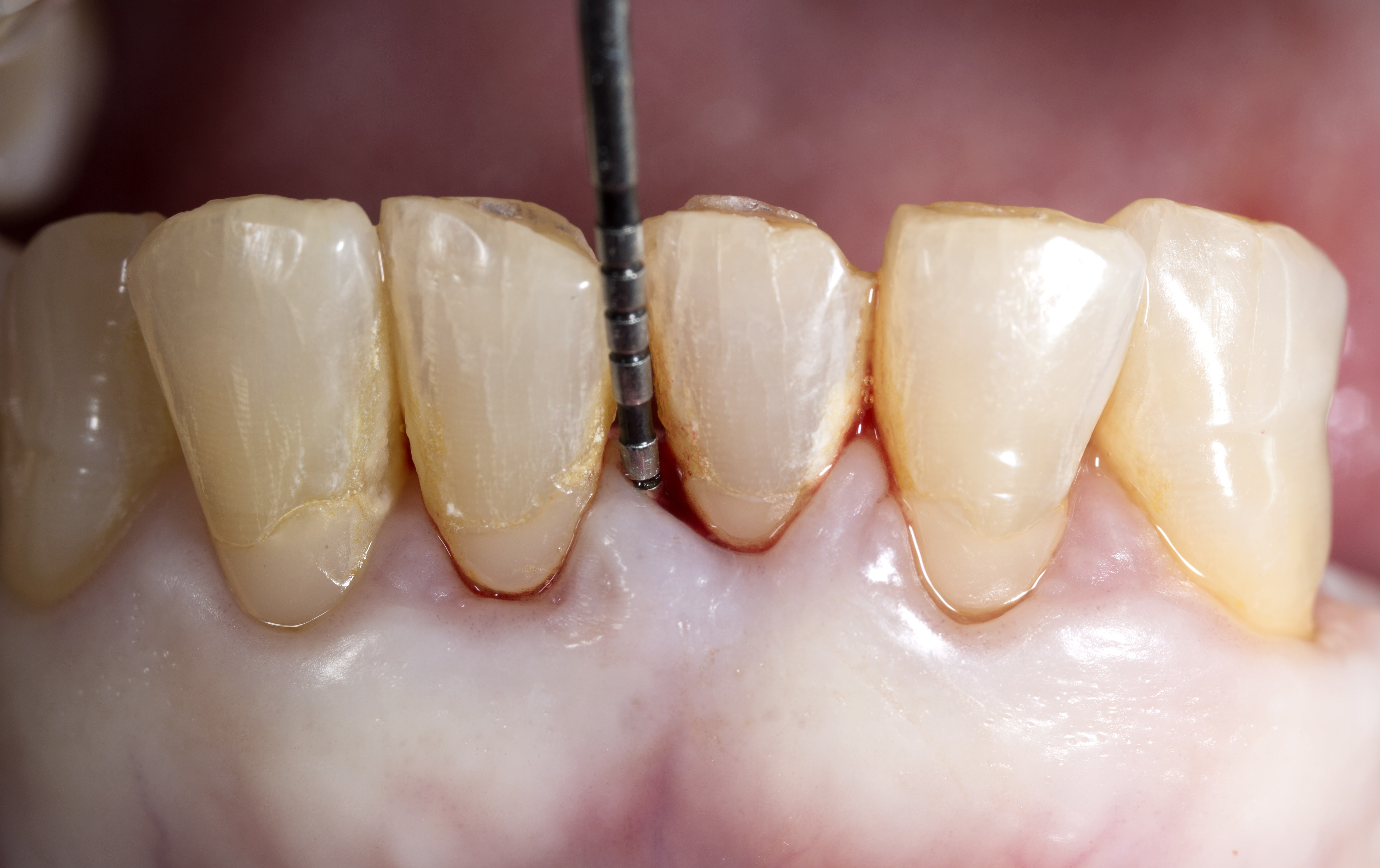
Periodontitis, also known as gum disease, is a serious gum infection that damages the soft tissue and if left untreated, can destroy the bone that supports your tooth, resulting in tooth loss.
By Pritesh Raval, Periodontist
MJDF PG Cert MClinDent (Perio) MPerio RCSEd EFP Diploma in Periodontal and Implant Dentistry GDC No: 155163
Periodontitis is the medical term we use to describe gum disease. In the early stages, you get inflammation known as gingivitis. If not treated, gingivitis can turn into Periodontitis, a much more serious condition that can cause gums to become swollen, sore and infected. It can also lead to loss of teeth.
Gingivitis is relatively easy to treat but many people ignore the early warning sign of bleeding gums when brushing their teeth. That’s why it’s so important to visit your dentist for regular check-ups as they can notice signs of early gum disease.
In more serious cases, Periodontitis can result inflamed tissue around the teeth, making gums pull away and creating pockets where additional bacteria can build up, resulting in loss of teeth, bad breath and the bone in your jaw may be damaged.
What causes gum disease?
Gum disease is caused by a build-up of bacteria plaque on the teeth. Having good oral hygiene helps remove plaque which can otherwise irritate the gums and allows bacteria to infect the tissue around the teeth. A build up of plaque can lead to redness, bleeding, swelling and soreness and if not properly removed, can harden and form tartar which requires professional removal by a dental hygienist.
Periodontitis is the 6th most common condition in the UK. More than 500 million people, worldwide, are affected each year by gum disease. It is more predominant in men over the age of thirty and is much less common in children.
Pregnant women are also vulnerable to gum disease, with up to 70% of women experiencing gingivitis during their pregnancy due to the variating level of hormones in the body. Smokers are twice as likely to have problems and 95% of diabetics will also have some level of gum disease in their life.
What are the signs to look out for?
The main signs of gum disease include:
Preventing and treating gum disease
Having a good level of oral hygiene is key to preventing gum disease. Here are our top tips:
Brush your teeth twice a day, for two minutes, use mouthwash if advised and clean in between your teeth twice a day.
Have regular dental check-ups and have your teeth cleaned to remove any hard or soft deposits by a dental hygienist or dentist. The dental hygienist can show you how to clean your teeth effectively to help prevent plaque building up in the future.

Living a healthy lifestyle also helps to keep gum disease away. Exercising regularly as well as eating fresh fruit and vegetables is not only good for your entire body but also for your mouth.
If you have severe gum disease, you may find there is a need to have further medical and dental treatment, performed by a specialist periodontist. These treatmentscan reduce or even eliminate the bacteria present around and below the gum surface.
If you are diabetic, treating gum disease also has the added benefit of helping to improve the control of your blood sugar levels.

About Pritesh
After 8 years as a general dental practitioner, Pritesh embarked on a full-time 3 year specialist training pathway. Pritesh qualified as a specialist periodontist from the prestigious Eastman Dental Institute, part of University College London. Pritesh is passionate about clinical excellence and working with his patients through their treatment journey to improve their oral and general health.
If you are concerned about gum disease, get in touch to find out whether Periodontics and Periodontal treatment is a good solution for you by booking a consultation.

